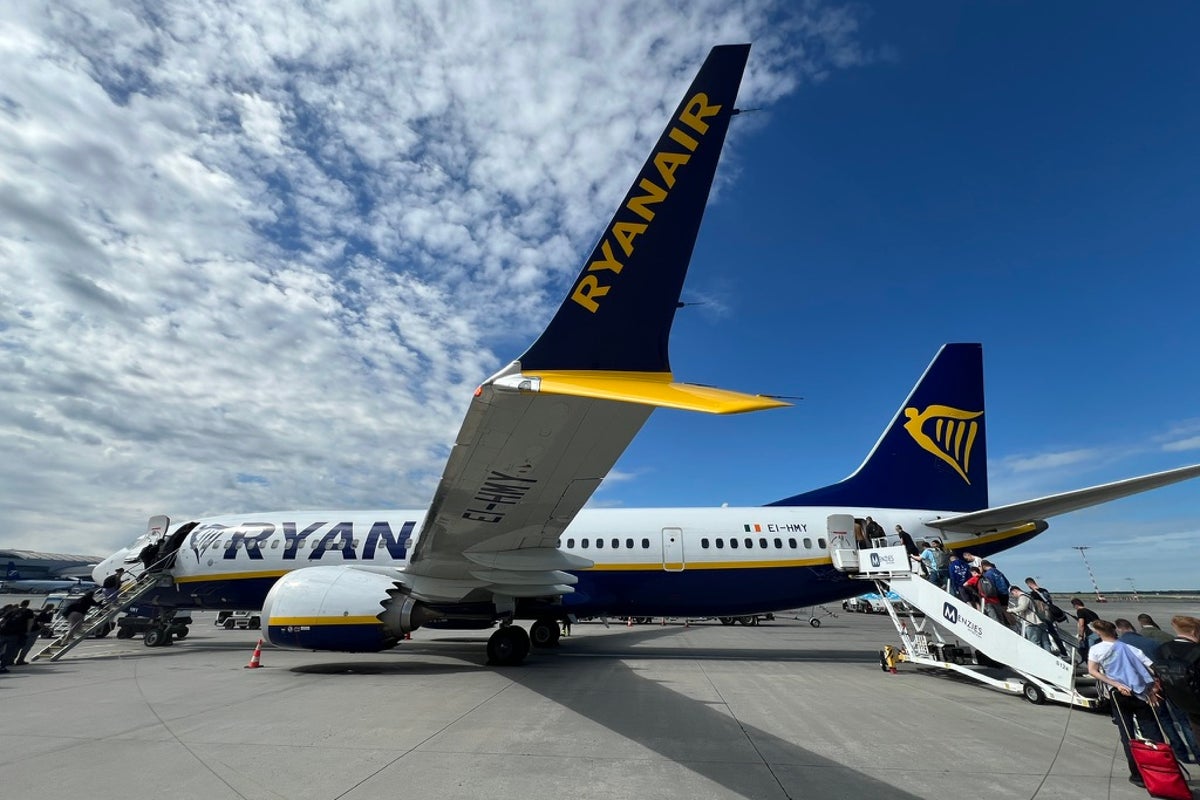Holidaymakers are set to face the worst air traffic control (ATC) issues in a quarter of a century this summer – with 30 million UK air passengers set to be delayed between June and August.
Summer travellers in 2024 experienced the worst air traffic control delays since 2001, largely due to staffing issues, and aviation heavyweights have warned that this year will be even worse.
On the eve of the start of the summer schedules, which begin on Sunday, Ryanair chief executive Michael O’Leary told The Independent: “It will be worse than last summer, particularly at weekends. Europe needs to fix what is a broken air traffic control system, which we pay ridiculously expensive fees for.”
The Independent has analysed the Eurocontrol Performance Review Report for 2024, which reveals some shocking delays.
During the summer months of June, July and August last year, one in three flights arrived more than 15 minutes behind schedule – the industry threshold for a delayed flight.
Adverse weather causes many of the delays, but a shortage of air traffic controllers is also blamed. Indeed, the Eurocontrol review reveals that many cases involving staff shortage may be wrongly attributed to weather. The report says that a capacity cut due to staffing “could result in a financial penalty” – while blaming the delay on adverse weather “could even result in a financial bonus”.
With an estimated 90 million passengers expected to fly to or from UK airports between June and September 2025, it is likely that 30 million will arrive a quarter of an hour or more behind schedule – jeopardising connections, eroding time on holiday, and adding to pressure on airlines.
Dr Peter Whysall, who conducted the review for Eurocontrol, called the constraints “a cause for concern” and said that performance is “likely to get worse unless structural issues are addressed”.
Mr O’Leary added that ATC delays have increased by 50 per cent in the last five years: “I wouldn’t object to those higher fees if we were getting an acceptable service. And yet last year, in 2024, we suffered record ATC delays.
“Major ANSP [air navigation service providers] all over Europe have admitted to us that they are understaffed, and that the ATC delays this summer will be worse than they were last summer. So we’re paying increased fees for a service that’s broken. It’s unacceptable.”
Pilots are accustomed to being told that they must wait on the ground because of restrictions at certain “area control centres” due to a lack of staff.
Eurocontrol has revealed the worst offenders, together with the proportion of delays:
- Karlsruhe: 13.1 per cent
- Budapest: 12.9 per cent
- Marseille: 7 per cent
- Zagreb: 6.5 per cent
- Reims: 6 per cent
The French Civil Aviation Authority (DGAC) is responsible for a quarter of delays. The organisation says: “The DGAC provides efficient air navigation services of high quality in terms of safety, the environment and capacity, at the best cost.”
Ben Smith, chief executive of Air France-KLM, said: “The shortage of air traffic controllers [in France] is 20-25 per cent, which means many of our flights are going to be delayed, and we already know this.”
Air France and KLM are susceptible to delays because so many passengers are connecting through their hubs in Paris CDG and Amsterdam respectively. With transfers of an hour or less between flights, a delayed arrival can trigger many missed connections.
Airlines are responsible for providing customer care and rearranging onward travel, even though they are not responsible for causing the delay.
“Today, it’s just ‘Throw it on the airline.’ It’s easy,” said Mr Smith. “To be beaten up in a way that costs us, and ultimately costs customers, is not correct. It’s not good for anybody.”
The European Commission says: “Insufficient airspace capacity, as seen in recent years, leads to long delays and difficulties for passengers.
“These delays affect the efficiency of the entire air transport system. Delays are the cause of additional costs for airlines, and they increase the sector’s carbon footprint, with additional emissions from aircraft flying more fuel-inefficient routes.”
Mr O’Leary even ventured that a popular flight-tracking service could help out. “Flightradar24 could provide most of the air traffic control service across Europe f***ing free of charge,” he said.
Nats, the UK air traffic control service, declined to comment on the remark.
The UK’s two busiest airports – London Heathrow and Gatwick – have the highest additional “arrival sequencing and metering” times due to their lack of capacity. They are respectively the busiest dual-runway and single-runway airports in the world.
At Heathrow, queueing for arrival averages seven-and-a-half minutes, and at Gatwick six minutes.

